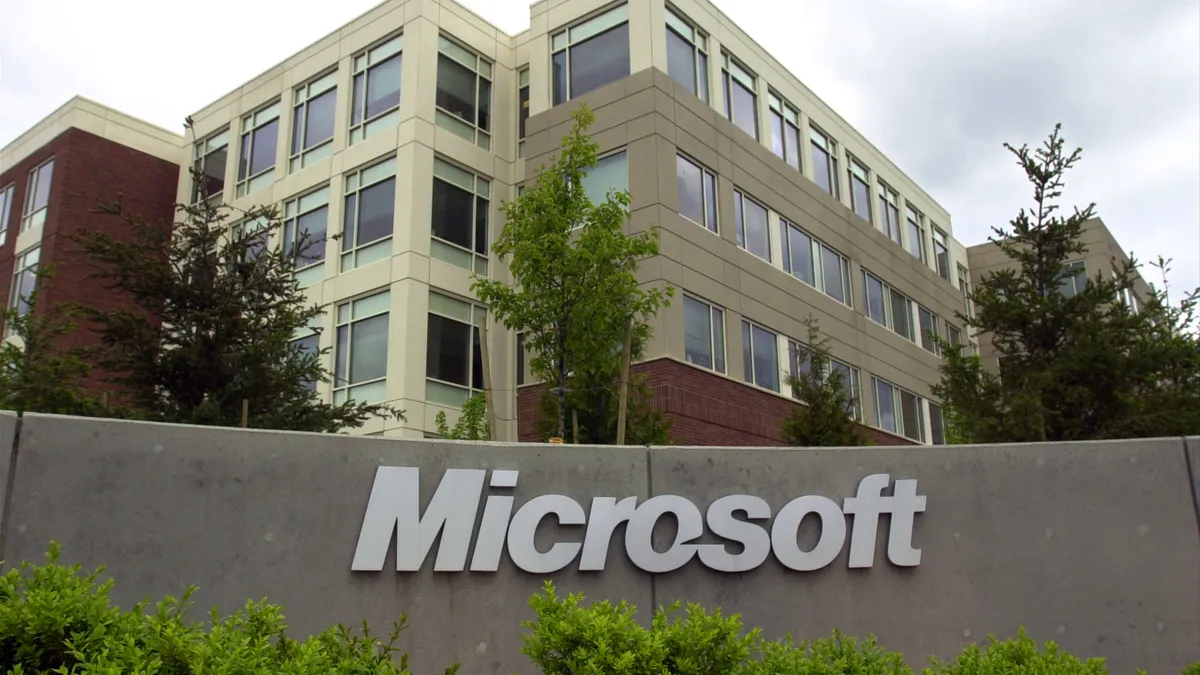Microsoft will install Oracle Exadata and related database hardware in its Azure data centers as part of an expanded multicloud integration partnership, the two companies announced Thursday.
Oracle Database@Azure gives customers access to database services running on Oracle Cloud Infrastructure deployed in Azure data centers, the companies said. Customers can purchase the solution from Microsoft via their Azure agreements or through their existing Oracle Database licenses.
“A lot of our customers had moved partially to the cloud,” Oracle Chairman and CTO Larry Ellison said during a Thursday briefing. “A majority of data has not migrated from on-premises into the cloud as yet, but it will. And we are trying to hasten that process, to make it easier for customers to actually move their entire data center workload to the cloud,” said Ellison, who teased the announcement during Oracle’s Q1 2024 earnings call earlier in the week.
Attracting new enterprise customers through industry verticals and expanding product marketplaces is one hyperscaler strategy for growing cloud business. Unlocking the troves of data current customers retain on-prem for migration to the cloud is another approach.
The alliance between Oracle, a relatively small player in a massive cloud market, and Microsoft, the second-largest cloud provider behind AWS, dates back to 2019, when the two companies deployed an interoperability solution that let customers connect on-prem workloads to both providers’ clouds.
Oracle Database Service for Microsoft Azure, an integration that did not place OCI servers directly in Azure data centers, was announced last year. It required far less backend tinkering on the part of the customer, Sid Nag, VP analyst at Gartner, told CIO Dive, but was only available in regions where Azure and OCI datacenters were in close proximity.
“Applications that run on Azure using Oracle databases are quite common,” Nag said. “Instead of making the customer configure the stitching, they did all the backend instrumentation and allowed those applications to run in Azure while the database that's used by the applications runs in an OCI data center.”
In the new arrangement, Oracle will operate and manage qualifying OCI services directly within Microsoft's data centers globally, beginning with regions in North America and Europe. Currently, twelve of Oracle’s 44 public cloud regions interconnect with Azure, Oracle CEO Safra Catz said during the Q1 2024 earnings call.
The physical presence of OCI servers in Microsoft data centers will eventually expand the integration’s availability, Nag said.
The generative AI connection
Cloud companies are banking on data-intensive generative AI training, tuning and inference workloads to boost cloud consumption, sparking revenue growth. Integrations that link data to cloud-based applications will be crucial to deploying the new technology.
“When I look at anything that you do around AI, you need to have access to data,” Microsoft CEO Satya Nadella said Thursday. “And so to have now Oracle Database in Azure means we can take something like Azure OpenAI, and take it to where the data is.”
Ellison concurred, noting the cooperation between two companies generally seen as competitors.
“We’re putting all of our technology together in one place, in Azure data centers, to make it convenient for customers and economical for customers to do things, like Satya just described, training an AI model,” Ellison said.
The partnership between rivals takes place in the shadow of a larger battle for cloud dominance against the biggest hyperscaler, AWS, and Google Cloud’s launch of a cross-cloud interoperability network last week.
“For Microsoft, this gives them an advantage versus AWS and Google in terms of being able to offer enterprise customers on Azure direct access to Oracles databases and storage,” Jason Wong, VP analyst at Gartner, told CIO Dive via email.
“However, this is also a key partnership to bring more data into Microsoft's generative AI services through Azure OpenAI and various Microsoft Copilots for business applications,” Wong said.













